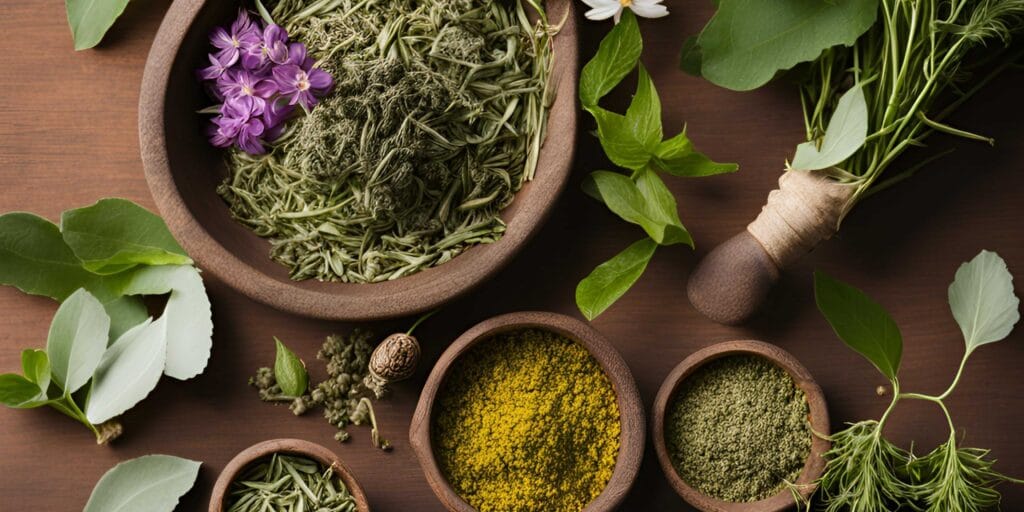
Caring for Ayurvedic plants requires understanding their unique needs for optimal growth and health. These plants thrive when provided with the right environment, including well-drained, nutrient-rich soil and ample sunlight. Most Ayurvedic plants, like Tulsi and Ashwagandha, need 4-6 hours of indirect sunlight and should be watered carefully to prevent overwatering, with soil allowed to dry between waterings. Regular pruning promotes healthy growth, while natural fertilizers like compost can enrich the soil without disrupting the plant’s medicinal properties. Protect your plants from pests with natural remedies such as neem oil, avoiding harsh chemicals that could affect their health benefits. Additionally, keep an eye on seasonal changes, adjusting water and sunlight as needed during colder months. By following these guidelines, you can ensure that your Ayurvedic plants remain strong, vibrant, and capable of providing their healing properties.
Watering and Soil Needs
Ensure well-drained soil and water only when the top layer is dry. Avoid overwatering and use room temperature water.
Sunlight and Positioning
Provide 4-6 hours of bright, indirect sunlight daily. Adjust the plant's position based on seasonal changes to prevent overexposure or lack of light.
Pruning and Harvesting
Regularly prune to encourage healthy growth and use clean tools for harvesting. Herbs like Tulsi benefit from regular trimming to promote new growth.
Pest and Seasonal Care
Use natural pest control like neem oil and protect plants from extreme weather by adjusting watering and temperature exposure during colder months.
Water your plants when the top inch of soil feels dry. Avoid overwatering and ensure proper drainage to prevent root rot.
Most Ayurvedic plants require 4-6 hours of bright, indirect sunlight daily. Adjust their placement seasonally to avoid harsh midday sun.
It’s best to use organic compost or natural fertilizers like cow dung. Chemical fertilizers may disrupt the plant’s natural medicinal properties.
Regular pruning encourages growth. Use clean, sharp tools to cut leaves or stems, and harvest plants like Tulsi frequently to promote new growth.
Natural remedies like neem oil, garlic sprays, or insecticidal soap are effective in controlling pests while preserving the plant's medicinal value.
Ayurvedic plants thrive in well-draining, nutrient-rich soil. You can improve the soil by mixing it with organic compost.
Repot your plants every 1-2 years or when they outgrow their pots. Choose a pot with good drainage and fill it with fresh, nutrient-rich soil.
Some Ayurvedic plants are sensitive to cold. During colder months, bring indoor plants to warmer spots, or mulch outdoor plants to protect the roots.
